03 May Theater Reviews by Morna
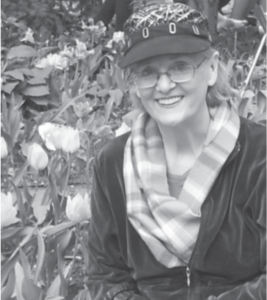
Morna Martell
ELISABETH BERGNER – a true story
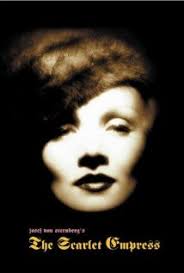 Why I love live theater is back on my agenda, having received a letter from solo performer Arnold Weiss regarding Austrian actress Elisabeth Bergner, who I’d mentioned seeing perform onstage in a past column. Arnold wrote: “I’d give a million dollars to have seen Elisabeth Bergner in “First Love” – I’d seen her in two films. She had a great presence – to me the perfect Rosalind opposite Olivier in “As You Like It”…” Hence, this true story!
Why I love live theater is back on my agenda, having received a letter from solo performer Arnold Weiss regarding Austrian actress Elisabeth Bergner, who I’d mentioned seeing perform onstage in a past column. Arnold wrote: “I’d give a million dollars to have seen Elisabeth Bergner in “First Love” – I’d seen her in two films. She had a great presence – to me the perfect Rosalind opposite Olivier in “As You Like It”…” Hence, this true story!
In the early 60’s I was a young beginner-actress who by pure luck had managed to be cast as understudy to the great Joan Plowright in “A Taste of Honey” on Broadway. When the show closed in New York City, I found myself on the road with the National Tour – nine months that now count among the most exciting and fruitful of my life.
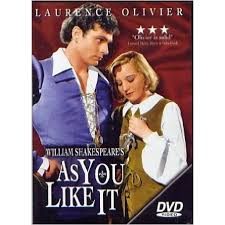 Whenever we were in a town where another Broadway tour was playing, we sometimes managed to get to see these fabulous shows. It was in Chicago that I saw the great Elisabeth Bergner in the stage adaptation of Romain Gary’s memoir “Promise At Dawn.” Now titled “First Love” the play was on its pre-Broadway tour. They had a Thursday matinee (ours was on Wednesday) so with other cast members I eagerly went and sat in orchestra seats close to the stage.
Whenever we were in a town where another Broadway tour was playing, we sometimes managed to get to see these fabulous shows. It was in Chicago that I saw the great Elisabeth Bergner in the stage adaptation of Romain Gary’s memoir “Promise At Dawn.” Now titled “First Love” the play was on its pre-Broadway tour. They had a Thursday matinee (ours was on Wednesday) so with other cast members I eagerly went and sat in orchestra seats close to the stage.
In my memory: The play was about Gary’s mother, Nina Kacew, a Polish Jew, living in Nice, France, during the brutal Second World War. The person I saw onstage had no theatrical airs, she was clearly uneducated, but a highly patriotic and energetic woman, whose love for her son was boundless. Romain (Hugh O’Brien) was a young man, a loyal Frenchman, determined to fight the Germans. His mother encouraged him to join the Free French Air Force headquartered in England. In one marvelous scene, forever etched in my memory, he came to say goodbye to her in full military dress before going away to war.
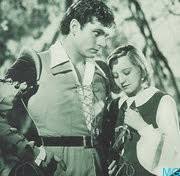 Ah, was she proud of him! What levels of ecstasy surged through her bosom as she took him out of their house to show the neighbors, exclaiming, “This is my son! See him. See how brave he is. How magnificent!” The neighbor-actors were fine with their admiration, but that was not enough for this woman Bergner inhabited. To my utter amazement she looked out at us sitting, watching in the dark. “See my son! He will save us from these beasts!” she cried and in a burst of enthusiastic joy dragged him down off the stage to us.
Ah, was she proud of him! What levels of ecstasy surged through her bosom as she took him out of their house to show the neighbors, exclaiming, “This is my son! See him. See how brave he is. How magnificent!” The neighbor-actors were fine with their admiration, but that was not enough for this woman Bergner inhabited. To my utter amazement she looked out at us sitting, watching in the dark. “See my son! He will save us from these beasts!” she cried and in a burst of enthusiastic joy dragged him down off the stage to us.
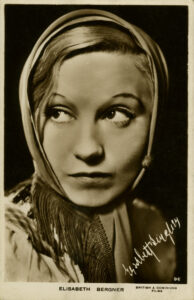 I saw her next to me, her eyes blazing, the actor-son squirming in embarrassment but grinning happily. “This is my son, my hero!” she said to me proudly, and I believed her with all my heart. At that moment I knew that as an actress I could never again hide behind a fake wall and not share totally with my audience. Elisabeth Bergner taught me that and, from that time, my playwriting and directing has always been inter-active with an audience.
I saw her next to me, her eyes blazing, the actor-son squirming in embarrassment but grinning happily. “This is my son, my hero!” she said to me proudly, and I believed her with all my heart. At that moment I knew that as an actress I could never again hide behind a fake wall and not share totally with my audience. Elisabeth Bergner taught me that and, from that time, my playwriting and directing has always been inter-active with an audience.
A few days later I was shocked to hear that the show was going to Broadway without her. I learned through the theater grapevine that she and the director, Alfred Lunt, had a disagreement over her interpretation of the role. They chose director over actor and it opened on Broadway with Hungarian star Lili Darvas on December 25, 1961. The show closed after 24 performances.




Sorry, the comment form is closed at this time.